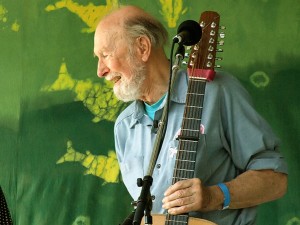Metals have a melting point. Zinc turns to liquid at about 800 degrees. That’s low for a metal, but an appropriate analogy for some of us who begin to get gooey at the sound of even the simplest music. Music can easily soften our hardened selves.
There are rough estimates by those who study such things that perhaps five to ten percent of the population suffers from what is sometimes called “musical anhedonia.” The “condition, if that’s the word, is the clinical term clinicians like Oliver Sacks have used to describe a person who is mostly immune to the pleasures of music.
Ironically, the condition is probably harder on avid music lovers than the people with this trait. Those of us who are “sound centric” are surely mystified by the indifference of persons who could care less about a particular concert or recording. We all know the experience, and we may wonder why someone is not capable of appreciating what is at the doorstep of their ears.
If the indifference of a person is total and across the spectrum of all musical forms or genres, it could well invoke a degree of pity, akin to the feeling we might experience if someone says that the Grand Canyon they visited was “nothing special.” What a loss to never really know a great avenue of human experience.
Can He Be Serious?
In How the Mind Works the influential psychologist, Stephen Pinker, partly reflects this vacuum of feeling. He compared music to “cheesecake:” certainly nice, but “biologically functionless. . .” That’s stunningly dismissive, and at least a little offensive. The comparison of a piece of unhealthy food with a consequential form of human expression (the most consequential?) suggests the very kind of indifference that is so puzzling about musical anhedonia. Pinker misses the impacts of the far richer domain of music, which in its ubiquitous 12-note forms may well be the world’s only universal language.
The Victorians understood what it meant to “swoon” over something. The word has gone out of favor, but was usually meant to suggest a profound emotional response within a person to someone or something: a trigger to feelings of ecstasy. Old it is. But it’s a good word, and it works for all of us who can name exactly the many pieces of music that send us to welcome arcadias. Those characteristics represent our musical melting points: triggered perhaps by a chord sequence in an old pop hit, a particular mix of voices or instruments (doubling a cello with a voice always works for me), or the “resolution” of a dark piece of classical music into a sunnier major key.
I surely saw swoons a few years ago that you can see as well in a video clip from PBS’s In Performance at the White House (seen here via YouTube). The guests were in the East Room listening to singers that meant a lot to the Obamas. When the multi-talented Usher and the band took the stage and led into the first notes of the Marvin Gaye classic, Mercy Mercy Me, the faces of the staffers and First Family in attendance lit up like a Christmas display. The audience swayed; they smiled and sang along. Some found it impossible to not move with the rhythm of Gaye’s catchy and knowing lyrics. It is a representative moment of what so many musicians and appreciators live to hear again and again. We anticipate the chance to add greater depth to our lives through auditory magic, be it from Gaye, or Taylor Swift, or Haydn, or Basie.
In The Sonic Imperative: Sound in the Age of Screens I tried to describe conventional theories about music with ordinary words, and mostly failed. Music is its own idiom: all expression and feeling, but little stipulation. It often surpasses the limited meanings possible with ordinary language. We need it to fill in the gaps between what we can verbalize and the far more inexplicable impulse to reach toward what we feel.
![]()


